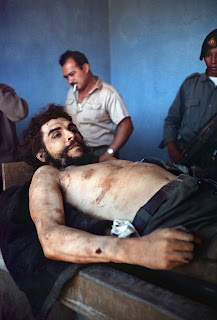The Reaper has been busy this year. Prince. David Bowie. Leonard Cohen. The Democratic Party. The Republican Party. The age-old belief that Presidents should not be pussy-grabbers. And now, Fidel Castro. The man who bedeviled 11 U.S. Presidents apparently could not escape old age as easily as he escaped CIA assassins.
Castro was a great man, but great does not mean good, and history is littered with examples of great promise in young leaders degenerating into narcissism, dictatorship, and decay. He was a man of a different time, a different world, the last leader of his generation. Many of his contemporaries (Kennedy, Che, Khrushchev) died a half-century ago. But Fidel endured. He was the Bob Dylan of politics, whereas Kennedy, Che, and Khrushchev were the Hendrix, the Cooke, the Lennon.
The question, of course, is what did he endure for? Castro was a revolutionary, but revolutionaries inevitably become conservatives if they live long enough, which most of them do not.
Fidel was a mass of contradictions. Freedom fighter. Tyrant. Great driver of physical and educational leaps forward for his people. Apocalyptic Egomaniac. This is a man who absolutely improved the health, education, and dignity of his people, but also a man who was prepared to consign them all to a nuclear holocaust.
If there were every any such thing as a good Communist, it was Fidel. But there isn't.
Because of Fidel's total devotion to his people (whether his people wanted that devotion or not), Cuba has a higher literacy rate than the U.S., a longer life expectancy, and a lower child mortality rate. This is remarkable. But was it necessary for him to hold jealously to absolute power for decade upon decade to achieve those very real advances?
And when he was finally forced by physical infirmity to at least publicly hand over power several years ago, was there really nobody on the island better suited for the job than his geriatric "younger" brother?
 | |||
| Finally, some new blood! |
Fidel wasn't Stalin of course; he didn't murder his former brother-in-arms, but he made no effort to save him, either. Even 50 years ago, less than 10 years into the Revolution, it was clear that Fidel was about Fidel. He saw himself as indistinguishable from Cuba itself, which may sound selfless and romantic at first, but is shown to be incredibly selfish and dangerous over time.
One cannot assess Fidel, of course, without assessing the United States. Our Cold War Cuba policy, in large part, made Fidel what he was. Perhaps without our obsessive enmity towards him, he would have opened up Cuba earlier. But it is also true that Castro thrived on that enmity, and did not hesitate to label any Cuban critic of his dictatorship as a CIA stooge, a traitor to the fatherland.
While Castro has far, far, far less blood on his hands than any other Communist dictator (they call that "damning with faint praise"), he followed the worst instincts of Communism. It is a testament to his genuine popularity among his people that was able to hold on to power for so long and with such comparably little bloodshed.
Castro's impact on American history is monumental. Were it not for Castro, President Kennedy probably would not have been assassinated, as Lee Harvey Oswald was motivated in part by his delusional conviction that he was protecting the Cuban Revolution by murdering John Kennedy.
 |
| Turns out the CIA just gave him a really, really, really, really slow-acting poison |
If Kennedy had lived, it is entirely possible that no American combat troops would have been sent to Vietnam...
 |
| He doesn't look like a world-wrecker, does he? |
The 2000 presidential election came down to Florida, and one of the reasons Florida was so close was due to Cuban-Americans' anger at the Clinton administration for sending Elian Gonzalez back to Cuba after his mother essentially kidnapped him from his father in Cuba and died in the desperate flight to freedom aboard a rubber raft. No Fidel obsession, no George W. Bush.
 | ||
| What could go wrong? |
Unlike other dictators, it is clear to me that Fidel was motivated primarily by a love for his people. It is also clear, however, that across the decades that love may have become inseparable and indistinguishable from his love for himself.



No comments:
Post a Comment